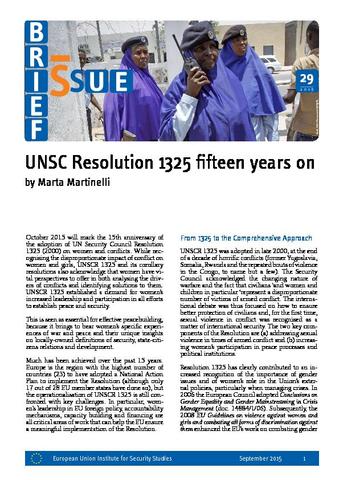You are here
UNSC Resolution 1325 fifteen years on

October 2015 will mark the 15th anniversary of the adoption of UN Security Council Resolution 1325 (2000) on women and conflicts. While recognising the disproportionate impact of conflict on women and girls, UNSCR 1325 and its corollary resolutions also acknowledge that women have vital perspectives to offer in both analysing the drivers of conflicts and identifying solutions to them. UNSCR 1325 established a demand for women’s increased leadership and participation in all efforts to establish peace and security.
This is seen as essential for effective peacebuilding, because it brings to bear women’s specific experiences of war and peace and their unique insights on locally-owned definitions of security, state-citizens relations and development.
Much has been achieved over the past 15 years. Europe is the region with the highest number of countries (23) to have adopted a National Action Plan to implement the Resolution (although only 17 out of 28 EU member states have done so), but the operationalisation of UNSCR 1325 is still confronted with key challenges. In particular, women’s leadership in EU foreign policy, accountability mechanisms, capacity building and financing are all critical areas of work that can help the EU ensure a meaningful implementation of the Resolution.